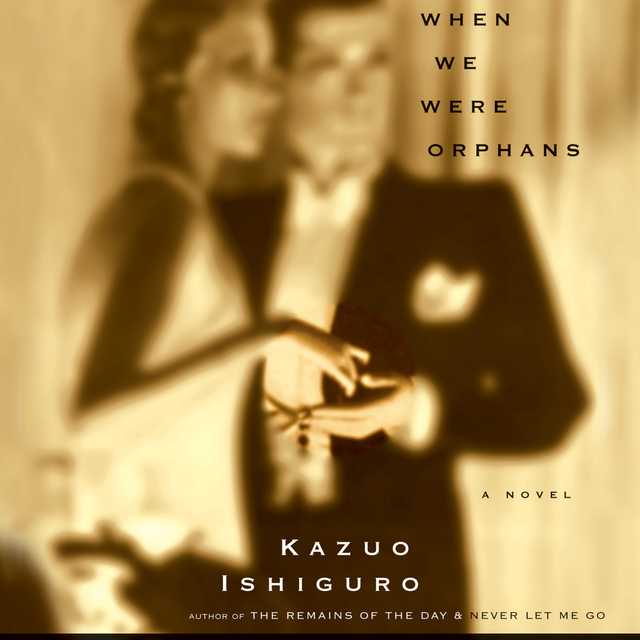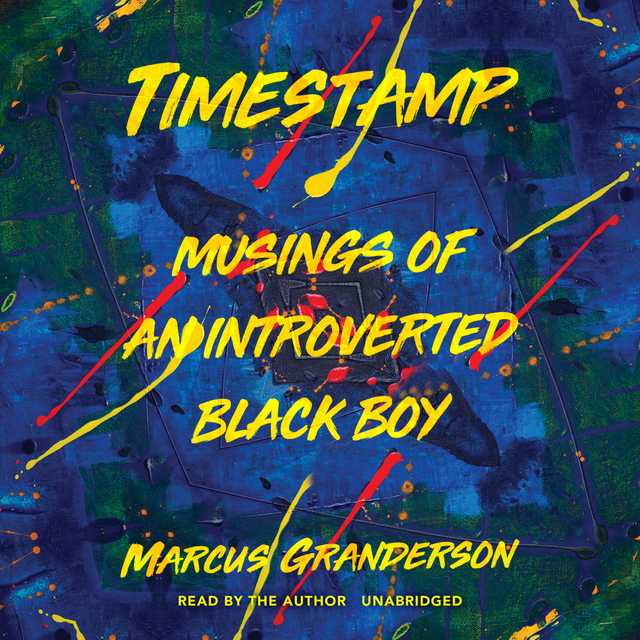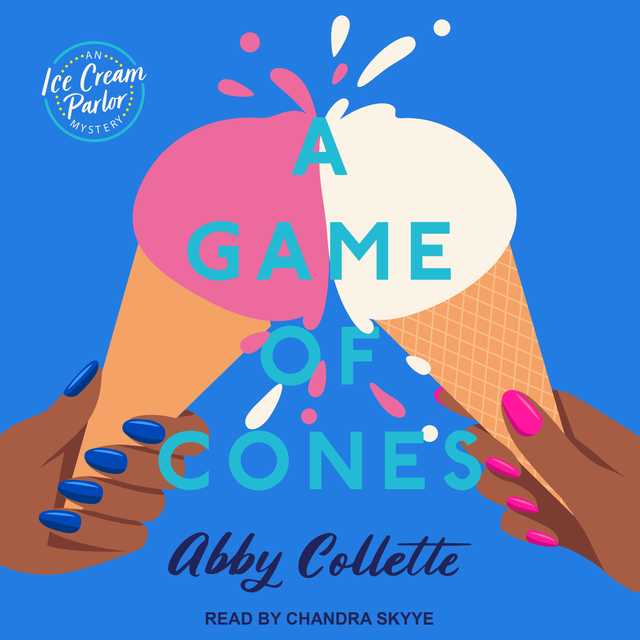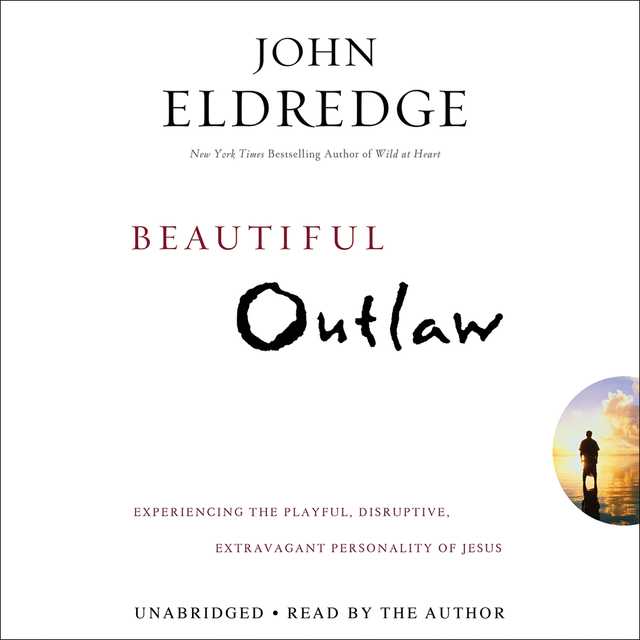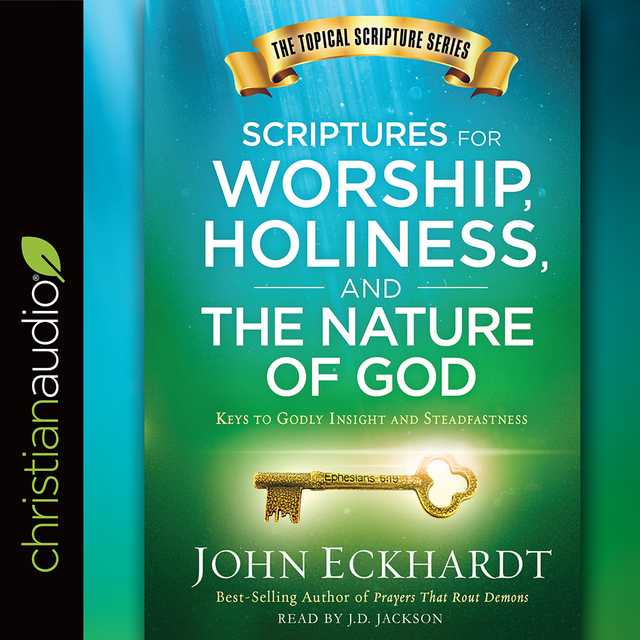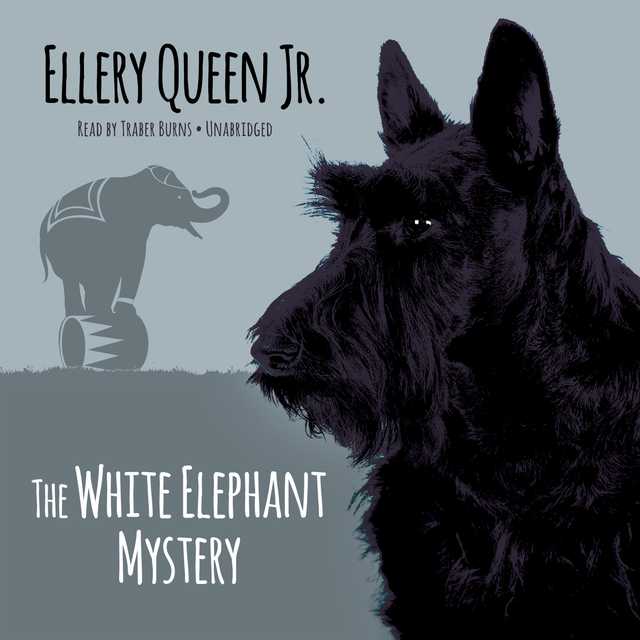When We Were Orphans Audiobook Summary
A masterful novel from one of the most admired writers of our time.
Christopher Banks, an English boy born in early-20th-century Shanghai, is orphaned at age nine when both his mother and father disappear under suspicious circumstances. He grows up to become a renowned detective, and more than 20 years later, returns to Shanghai to solve the mystery of the disappearances.
Within the layers of the narrative told in Christopher’s precise, slightly detached voice are revealed what he can’t, or wont, see: that the simplest desires–a child’s for his parents, a man’s for understanding–may give rise to the most complicated truths.
A feat of narrative skill and soaring imagination, When We Were Orphans is Kazuo Ishiguro at his brilliant best.
Performed by John Lee
Other Top Audiobooks
When We Were Orphans Audiobook Narrator
John Lee is the narrator of When We Were Orphans audiobook that was written by Kazuo Ishiguro
Kazuo Ishiguro is thw author of four previous novels, including TheRemains of the Day, which won the Booker Prize, and An Artist of the Floating World, which won the Whitbread Award. He lives in London.
About the Author(s) of When We Were Orphans
Kazuo Ishiguro is the author of When We Were Orphans
More From the Same
- Author : Kazuo Ishiguro
- Never Let Me Go
- Nocturnes
- The Buried Giant
- A Pale View of Hills
- The Remains of the Day
- Publisher : HarperAudio
- Abraham
- American Gods [TV Tie-In]
- Dead Ringer
- House of Sand and Fog
- Prey
- Narrator : John Lee
- The Common Path to Uncommon Success
Additional info
The publisher of the When We Were Orphans is HarperAudio. The imprint is HarperAudio. It is supplied by HarperAudio. The ISBN-13 is 9780060854317.
Global Availability
This book is only available in the United States.
Goodreads Reviews
William2
January 03, 2016
Second reading. Ishiguro's novels are nothing if not enigmatic. There's disorientation; the reader is never quite sure where he stands. When We Were Orphans is a quasi-Bildungsroman or coming of age/detective story. It is set over a period of fifty years or so in London, Shanghai and then back in London again.Narrator Christopher Banks is born of English parents with whom he lives in the International Concession in Shanghai. Around 1915 or so they disappear, when he is about nine, and are believed victims of the kidnapping gangs operating in the city at the time. His guardians send him to London where he attends Oxford. At one gathering with college friends he is given a large magnifying glass as a prank, but Christopher, whose sense of irony is nonexistent at this point, takes the gift very seriously. Very soon he is pursuing a successful career as a detective in London. His successes however are mysteries, enigmas, as is his process of achieving them. The reader is intentionally excluded from the procedural detail of Christopher’s cases. Ishiguro busies himself with overturning the conventions of the detective novel. There’s a lot of highly idealistic talk at this stage by Christopher and those he meets about answering the call and subverting evil. The argument we soon realize is far too broad and encompassing. After a while it takes on a cartoonish or comicbook impracticality. This is also intentional. In the early part of the novel, Christopher often equivocates. He’s fond of phrases like “it is entirely possible,” or “I do not remember quite how this came about.” The watchword for Christopher in the first third of the novel is denial. He is living an extended adolescence. He hasn’t grown up. We see this childishness in his belief, carried to the nth degree once he returns to Shanghai, that he can “rescue” his parents; that, in fact, his parents are still alive and living with their kidnappers somewhere in the city. This is pure fantasy, which is how Christopher rolls.A virgin with heterosexual leanings, early on he is attracted to the social gadfly and fellow orphan Sarah Hemmings. There's clearly a connection on the level of desire but Christopher has little notion of what he might do with Sarah were she in his possession. Sex is a mystery. Note to lovers of literary sex, this novel is without it. There are, thankfully, no erection-inducing passages. Sarah represents an overturning of the love-of-his-life convention, rife in thrillers mostly of the lower grade.Unlike Christopher’s mother, who undertakes what turns out to be a very dangerous campaign against British opium trafficking in China — a very thrusting woman who completely belittles and alienates her spouse — Sarah believes she can only be effective in life if she is married to the right man. When Christopher doesn’t do anything despite her repeated public praising of him, she marries an old dodderer, Sir Cecil Medhurst, with the object of goading him into one last bout of productivity, presumably diplomatic -- we’re never quite sure what Sir Cecil does -- before he croaks. This lights a fire under Christopher who realizes the time has come to rescue his parents. He seems completely unaware of the fact that he’s really going to Shanghai to find Sarah. The first fifth of the book is about Christopher pursuing his detective career as a young man in London, 1932. The second fifth is all flashback to Christopher’s childhood in Shanghai with his parents, his Japanese friend and neighbor, Akira, with whom he plays, and someone known as Uncle Philip, who is not a real uncle at all. This section outlines Christopher’s naïve mindset which persists for the first two-thirds of the book. Christopher returns to Shanghai just after the Japanese invasion of 1937. Now the story distorts into almost camp surrealism. Things get very bizarre. Ishiguro intentionally conflates Christopher's purpose in the city. Is he there to “solve” the war situation? Is he there to rescue his parents? Or is he there for another unnamed purpose? The reader is never sure. Then there’s his cryptic raging against the city fathers for having “let the situation” deteriorate so much. The reader is never quite sure what he’s talking about. This “disorientation” is an analog to Christopher’s mental state. He doesn’t know what he’s talking about and so can be called highly unreliable.The detective work he does is like a child’s game carried out in a friend’s backyard. The cartoonishly large magnifying glass implies a focus that Christopher is entirely lacking. Everyone in Shanghai knows he’s there, but why he’s there is constantly shifting. A fellow at the British Consulate, Grayson, seems on one level to actively mock Christopher by going on at length about a reception to be held in a public park once Christopher rescues his parents, which seems far from certain. This is so deftly handled though that we aren’t sure if it’s cruelty on Grayson’s part or if he possesses the same depths of credulity as Christopher. It is not until an excruciating scene in Shanghai amid fighting between the Japanese and the Chinese Nationalists that Christopher comes upon the brutal truth. (I am reminded of J.G. Ballard’s Empire of the Sun here, also set in Shanghai.) I don’t want to reveal how the revelation is brought about. Let’s just say, that the last fifth of the book represents an astonishing pulling together and elegant recapitualtion of what had up to this point seemed to be aimless and disconnected bits of information. Suddenly--bang!--the novel jigsaws itself together. The achievement here is outstanding. I think it represents, as the early part of the novel was an usurpation of detective novel conventions, a bit of an homage to them. There’s this turnabout aspect to the narrative that is entirely unexpected and thrilling. The reader must really trust the novelist here. The first two thirds of the book seem almost desultory, but in fact this is meant to reflect the fact that Christopher Banks is not quite an adult. He equivocates, he hedges, he sidesteps, etc., as opposed to the last fifth of the book where he becomes more certain, more sure of things, more determined in matters of the heart. In short, Christopher Banks has grown up. And it is one of the most ruthless and pitiless maturations I have ever come across in fiction. When Christopher becomes aware not only of how he has lived his life, but of the delusions he has had to willfully maintain in order to live it — the reader feels sledgehammered. There’s that wonderful interval when we read on breathless, stunned, appalled, as if our lives depended on it. Christopher’s earlier misdirection and hesitation and willed ignorance are swept away. He comes of age and as with all of us this means facing down some pretty cruel truths. This to my mind is Ishiguro’s best novel, though the others are worthwhile and I recommend them without reservation, especially The Remains of the Day. In this one there is a powerful distillation and crystallization of Ishiguro's methods and voice. If you only read one novel by Ishiguro make it this one.
Jim
October 26, 2019
I’ll characterize this novel as ‘haunting.’ A boy grows up with his British parents in the enclave of Shanghai where all foreigners have to live. It’s around 1900. Much of the first half of the book involves the man’s reminiscences of his childhood, particularly time spent playing with his next-door buddy who was Japanese. The boy learns bits and pieces of intrigue from conversations among his mother, father and uncle. His mother was an active anti-opium crusader through her women’s clubs. Yet his father’s big British firm may secretly be involved in opium trafficking. When the boy is about ten years old both of his parents disappear in separate incidents. He’s now an orphan sent back to London to live with an aunt.Contrary to what we might expect from the title, although ‘orphanhood’ is mentioned throughout the book, it’s not really a well-developed theme. He is courted by a socialite in London who is an orphan, and he adopts a young girl who is an orphan, but we don’t really get much insight into the theme. Eventually the main character becomes a famous detective in London. We learn nothing of the cases he has been involved in. He read Sherlock Holmes as a kid and played detective with his Japanese friend. He also learned about and from Chinese detectives when his parents disappeared, so that makes sense as a career path for him. Years later (1937), when his detective skills are sharpened, he returns to Shanghai to find out what happened to his parents. Here the story takes a turn to fantasy. Even though his parents have been missing for more than 20 years, he and others start to believe that he will actually FIND them and rescue them from ‘kidnappers.’ One official at the British embassy starts planning a party for their return. The main character finds clues that lead him into neighborhoods of the city that are actively being bombed by the Japanese. He comes to believe he has found a dying Japanese soldier who is his old childhood friend. In the end, -- I won’t say ‘solves’ the mystery -- but he does learn what happened to his parents -- different stories for each. Another large part of the story revolves around a socially prominent woman who initially avoids the main character but essentially throws herself at him after he becomes famous. While he’s searching for his missing parents, she has married and is coincidentally living in Shanghai with her husband. The marriage is a disaster and she and the main character make plans to run off and marry. A good, not a great, novel. A psychological novel about memory. There’s good writing and some suspense. From top, photo of Shanghai in the 1930's from cdn1.i-scmp.com/sites/default/files/stylesChinese people in 1900's from dailymail.co.ukThe author from nobelprize.org
Sean Barrs
October 13, 2017
My favourite Ishiguro! “On the contrary, it is never too late to, as you put it, pick up the scent” Indeed, it most certainly isn’t. This book was so, so, deep. I feel like my emotions have been stretched to breaking point when reading. If you’ve not ready any of Ishiguro’s novels before, then don’t be deceived, this is no mere crime novel: this is an exploration of the human soul. Ishiguro has written such a powerful novel here. In the process of questioning the fleeting nature of the past, the fickleness of the human mind, he shows us that memories are just memories: they can never be recreated or relived. They’ve gone. Despite what human will would try to dictate, it can’t ever be changed; it will always remain in the past; it’s finished with. The same is very true for human character: the person you will be in twenty years is not the same as the person you are today. Time changes all, even memories. The power of Ishiguro’s words resides in his evocation of a longing to return to the past, and the futility of it. “Your farther never arrived at the office this morning. But, I’m sure there is a perfectly simple explanation” Some novels just speak so clearly to you on a personal level, and this one shook me to the core. Christopher Bank’s story transcends that of the mere plot, and his quest to find his parents. The details aren’t important. These are simple vessels for Ishiguro to capture his meaning. Banks has become a celebrated detective, but his haunted by his memories of his childhood. So, eventually, he acts on them, and tries to return to a time long past; he finds everything has changed, and he, himself, has changed along with everyone he once knew: the past is dead. It only lives in his mind. The structure of the novel accentuated this. The narrative continuously shifted time perspectives, which suggested Bank’s longing to return to his home. He tells the story of his childhood, in parts, in a fragmented and sporadic narrative. The need to return builds up slowly, inside him, until there is no other possible avenue of pursuit. It’s simply what he must do to carry on living. Life is never that straightforward though. You cannot so easily pick up the tatters of an old life; they are discarded much more easily. Time changes all, and war is just another catalyst in a dark world.Ishiguro is an excellent writer. I bought a copy of each and every book he has written after reading this. I simply must work my way through them all. This is not a genre of fiction I don’t normally like; I tend to avoid modern literary fiction like the plague. Perhaps that should change. I hope all of Ishiguro’s novels are as good as this and the The Remains of the Day because I just may have found an author to add to my favourites list. I’ll be reading Never Let Me Go later this year.
Ahmad
February 25, 2022
When We Were Orphans, Kazuo Ishiguro When We Were Orphans is the fifth novel by Nobel Prize-winning British author Kazuo Ishiguro, published in 2000. Ishiguro himself saying "It's not my best book".The novel is about an Englishman named Christopher Banks. His early childhood was lived in the Shanghai International Settlement in China in the early 1900's, until his father, an opium businessman, and his mother disappear within a few weeks of each other when the boy is about ten years old. Christopher is sent to live with his aunt in England. He becomes a successful detective; now he will turn his skills to solve the case of his parents' disappearance. Though he knows a young woman named Sarah (also orphaned at age ten), Christopher never marries; he adopts an orphaned girl in England named Jennifer. His fame as a private investigator soon spreads, and in 1937 he returns to China to solve the most important case of his life. The impression is given that if he solves this case, a world catastrophe will be averted, but it is not apparent how. As Christopher pursues his investigation, the boundaries between life and imagination begin to evaporate. ...تاریخ نخستین خوانش: ماه آوریل سال2002میلادیعنوان: وقتی یتیم بودیم؛ نویسنده: کازوئو ایشی گورو؛ مترجم: مژده دقیقی؛ تهران، شهر کتاب، هرمس؛ سال1381، در400ص؛ شابک9643630978؛ چاپ دوم سال1385؛ چاپ چهارم سال1392؛ شابک9789643630973؛ موضوع: داستانهای نویسندگان بریتانیا - سده20ممترجم: مجید غلامی شاهدی؛ تهران، نوید ظهور، سال1394؛ در352ص؛ شابک9786008008156؛ایشی گورو، در این رمان نیمه پلیسی، به کندوکاو در زندگی یک کارآگاه خصوصی «ژاپنی الاصل»؛ که در «انگلستان» زندگی میکند، پرداخته است؛ نام شخصیت اصلی در این رمان «کریستوفر بنکس» است؛ کنشها و رخدادهای رمان، در سالهای دهه ی1930میلادی میگذرند، و «کریستوفر بنکس»، مشهورترین کارآگاه «انگلستان» شده است؛ همه ی مردمان «لندن»، درباره ی پرونده های او گفتگو میکنند؛ ولی معمای حل نشده ای، هماره ذهنش را مشغول کرده است «معمای ناپدید شدن اسرارآمیز پدر و مادرش، در دوران کودکی او، در شانگهای»؛ نقل از متن: (الآن یادم نمیآید، که ماجرای اتاق ناهارخوری، قبل از بازدید مأمور بهداشت اتفاق افتاد، یا بعد از آن؛ آنچه در خاطرم مانده این است که آن روز بعد از ظهر، باران شدیدی میبارید، و در نتیجه فضای خانه، دلگیر بود، و من نشسته بودم توی کتابخانه، و زیر نظر «مای لی» مسئله های حسابم را حل میکردمبه آنجا میگفتیم «کتابخانه»، ولی تصور میکنم، در واقع امر، صرفاً اتاق انتظاری بود، که دیوارهایش را، برحسب تصادف، قفسه های کتاب، پوشانده بود؛ وسط این اتاق، فقط به اندازه ی یک میز چوب ماهون جا بود، و پشت همین میز بود، که من همیشه، پشت به در دو لنگه ای اتاق ناهارخوری، تکالیف مدرسه ام را، انجام میدادم؛ از نظر «مای لی»، آموزش من، بسیار حائز اهمیت بود، و حتی زمانی که، قریب به یک ساعت، از شروع کارم میگذشت، در همان حال، که شقورق، بالای سرم ایستاده بود، هرگز به ذهنش خطور نمیکرد، که به قفسه ی پشت سرش تکیه بدهد، یا روی صندلی روبرویم، بنشیند؛ خدمتکارها، مدتها پیش فهمیده بودند، که نباید، در زمان درس خواندن من، وارد شوند، و حتی پدر و مادرم هم، پذیرفته بودند، که نباید مزاحم ما شوند، مگر آنکه، کارشان خیلی ضروری باشدبه این ترتیب، تا حدی غیرمترقبه بود، که پدرم، آن روز بعد از ظهر، بدون توجه به حضور ما، آمد تو، و با قدمهای بلند، از کتابخانه گذشت، و رفت داخل اتاق ناهارخوری، و درها را، محکم پشت سرش بست؛ چند دقیقه بعد از این ورود غیرمنتظره، مادرم هم وارد شد، و به سرعت از کتابخانه گذشت، و در اتاق ناهارخوری، ناپدید شد؛ طی دقایق بعد، حتی از پشت آن درهای قطور، گهگاه کلمه، یا عبارتی، به گوشم میخورد، که حکایت از آن داشت، که پدر و مادرم، درگیر مشاجره ای هستند؛ ولی هر وقت، سعی میکردم، قدری بیشتر بشنوم، و مدادم بیش از حد، روی جمع و تفریقهایم، مکث میکرد، تذكر «مای لی»، بی برو و برگرد، امیدم را نقش بر آب میکردولی بعد، یادم نیست، این امر، دقیقاً چطور اتفاق افتاد، «مایلی» را صدا زدند، و من ناگهان، پشت میز کتابخانه، تنها ماندم؛ در آغاز، فقط به کارم ادامه دادم؛ سخت نگران بودم، که اگر «مای لی» برگردد، و مرا روی صندلی ام نبیند، چه اتفاقی میافتد؛ ولی هرچه غیبت او، طولانیتر میشد، اشتیاق من هم، برای سر درآوردن، از جروبحثهای مبهم اتاق مجاور، فزونی میگرفت؛ سرانجام از جا بلند شدم، و به طرف درهای اتاق ناهارخوری رفتم، ولی حتی آن موقع هم، هر چند ثانیه یکبار، سراسیمه، به سوی میز برمیگشتم، یقین داشتم، صدای پای را میشنوم.)؛ پایان نقلتاریخ بهنگام رسانی 23/11/1399هجری خورشیدی؛ 06/12/1400هجری خورشیدی؛ ا. شربیانی
Libby
February 03, 2009
Many reviews here have commented on Ishiguro's unreliable narrators (let's let that classification stand, whether or not it is entirely valid or really applies to all of his work), as if this aspect of his fiction is so obvious, or that it has been so exhaustively mined, that there is little to nothing left to say about such a narrative strategy.Christopher Banks, When We Were Orphans' narrator, is certainly unreliable, yes. But our relationship to him as an unreliable narrator is a strange one, an inverted one. I think that it's fairly clear to the reader early on that Banks's memories and perceptions do not align with those of the people with whom he surrounds himself and/or encounters. His school chums and his one-time guardian recount for him their memories of his child self as a lonely, melancholy boy, which contravene his insistent accounting of himself as a sociable, friendly, put-on-a-brave-face type of lad. His insistence, which seems to verge on a quiet, private hysteria, his disproportionate insult, and the confluence of multiple others' POV point us to the fact that the schism between how he sees himself and how the world sees/saw him is not just a matter of opinion. The novel shows us, time and again, that Christopher is unwilling, unable, to reconcile not only his memory but his ongoing lived experience (see the scene at the wedding where he is apparently subjugated to teasing and humiliation, but insists that said teasers are his friends, etc., and note that we never get to see the actual scene) to the lived experience and memory of others. (We also never get to see him work, to uncover anything, to solve anything.)Here's where I'm sort of getting to my (excruciatingly long-winded) point...When We Were Orphans tells us, its readers, that it is a mystery novel. The book offers us one story, the disappearance of Christopher's parents, claiming that this story is its central mystery and suggesting, by form and structure, that this will be the riddle we puzzle out as we read, alongside Christopher. Thus, we enter into a sort of contract with the book in which we agree to be careful, astute readers, who by dint of our diligence and hard work will be treated to the satisfaction of resolution.All along, however, there is a secondary mystery that is actually the primary mystery, and that mystery is twofold: one, when will Christopher realize how deeply, irreparably damaged his perception of the world is, and two, WE THINK when we will learn the truth that his distorted vision has necessarily been hiding from us, despite our best efforts to see through it? Usually, in a novel that relies on an unreliable narrator (ignore the inherent contradiction), part of the reader's pleasure is untangling the skeins of the narrator's logic in order to arrive at some approximation of truth. But Orphans rejects that second possibility completely. (I am in no way suggesting that this novel's project is one of relativism, in which we're meant to see that there is no objective truth, or if there is, we cannot access it.) All along the mystery/mysteries is/are just a diversion, a smokescreen, a trick (that I admire deeply and totally respect) that leads us in a circle back to what we see, finally, is an absent center. There is no mystery in the book. The truth isn't the point. There is only the fact of Christopher's mutilating orphaning, his abandonment. His grievous misapprehension of his parents' abduction/leave-taking, the emotional/psychological violence of it,and his child's need to make sense and order of the insensible strand him in mental time; he is marooned in a make-believe world in which detectives are great heroes and even celebrities, a la Sherlock Holmes--a world that history tells us did not exist as such, especially in twentieth century Britain.When Sarah offers Christopher the chance to reject his false understanding of the world, to "see clearly," and to reject a vision of himself (one that is manufactured by an innocent egotism/narcissism that has sustained him all along) in which he is the savior not only of his parents, but also of an entire city and perhaps nation, he is, finally, unable to do so. To give that up would be to negate himself, to reject his very identity. He would be twice-orphaned.There's a lot going on here vis a vis the orphaning, of course--colonialism and imperialism, the patronizing"helping" of the east by the west, sexual politics and power, issues of class, et al. But as I read I felt more compelled by what's "missing" in this novel than what's there.I'll confess to being somewhat befuddled by and disappointed in the final revelation concerning Christopher's mother, and unsure about the necessity of Jennifer. My only thought about Jennifer's utility (and despite its coldness, that word seems apt) is that perhaps she's meant to enact the cycle of violence that "orphaning" perpetuates... she is orphaned twice over, and the novel's end suggests how devastating this has been for her.When I finished the book I found myself returning to its title, over and then over again. First person narratives usually require, despite old Bobby D.'s admonition, a looking back. They are necessarily retrospective. My mind lingers on the titular "When." Despite how sad the book is, despite its ambiguous ending, the title left me feeling hopeful for Christopher in that it seems to suggest that the time of his orphaning, of Jennifer's, and even of Sarah's (sigh), is past, is gone and that, no longer orphans, having chosen to look forward, to abandon their isolation and to rely on each other, on other people they might, oh they just might... be happy.
Baba
August 23, 2022
A celebrity detective had a traumatic childhood in Shanghai which left him an orphan sent back to live and grow in 1920s and 1930s England, where he also feels drawn, to a degree, to another orphan. This book is about his childhood, his detective years, his singular obsession and several follies, as his world is consumed with solving the ultimate crime of his childhood!I don't even know where to start! After very much enjoying reading Never Let Me Go and The Remains of the Day and then been undeniably unimpressed with The Buried Giant, I was worried this book wouldn't deliver, but by Golly it truly does! From Ishiguro's exquisite skill of building historical stories and places around first person narrators and their thoughts, with only a passing nod to descriptive sentences of environments to his way of capturing the heart, and dark soul, of the British Empire without preaching, and by just telling a story. With all his immense literary flair he never detracts from the idea that he is also telling a story, and is one of those great writers who can plant such subtle seeds of foreshadowing that you didn't realise you read them, 'til the third or fourth act!The ongoing theme of orphans which wields its way through the book is mesmerising as it's heartbreaking. Some of the secondary characters despite have so few pages dedicated to them, leap out of the page with how well conceived they are. My praise is endless. I've read a few literary reviews who accuse Ishiguro of giving the character his own 'voice' the same one used in Remains of the Day; for me it's the voice of early 20th Century England and it rings true.I should probably mention that most of the book is set in the last days of the British Empire's meddling in Shanghai, and before the rise of Communism, but as ever with Ishiguro, despite these events being world changing, it's character, and story that lead. GENIUS. FIVE STAR READ. 10 out of 12. I can see why there's never been an adaption, how could film ever replicate the beautiful nuances of this almost perfect story?2020 read
Barbara
January 02, 2020
Obsessions are rarely good things. Obsessions that rely on childhood memories lead to false judgements and delusional thinking. Christopher Banks, a successful London investigator and the narrator of this intriguing book, goes back to Shanghai where he lived as a child to discover the truth about the disappearance of his parents. He is unable to distinguish between what is actual and what he wants to believe. Ishaguro allows the reader to sort this out. Is the Japanese soldier really his childhood friend? Does he actually get a tour of the home of his youth? Are his parents safely hidden? Will he be exalted for returning them safely?The "we" part of the title is significant. Christopher's adopted daughter Jennifer, and Sarah, his lost chance for happiness and an escape from this obsession, were also orphans. They, too, were greatly affected ty this early trauma. We aren't told much about Sarah. We do know that Christopher abandoned her due to his obsession and that she at one point tries to end her life. Sarah overcomes her near obsession and tries to convince Christopher to also let it go. She tells him, "We're both as bad as each other. We have to stop thinking like that. We have to put that all behind us now. You've spent enough of your life already on all of that. Let's go before it's too late for us" But Christopher is too caught up in this obsession to change course.This was the 4th Ishaguro book I have read. Many similar themes run through these books but the characters and the plots are entirely different. I consider Ishaguro to be one of the finest modern writers I am acquainted with. I hope he will continue to produce more beautifully written, thought-provoking books.
Seth
July 14, 2008
When We Were Orphans was, for me, a pretty fascinating exploration of the difficulties typical to the lens of overgrown sentimentailty through which one approaches the vaguely remembered past. As the narration continues, one wonders just how ephemerally Christopher Banks, the narrator, holds his grasp on reality. Quite clearly his recollections of the distant past are modified to fit his circumstances and the man he's become—and paradoxically, the man he's become is a debt owed to these remembered (sometimes falsely so) experiences—but it may be more than that. It may be that the strength of his memories are so robust that they exert force upon even his more immediate experiences, colouring them to match the pallette of the world he's inherited from memoir.Christopher Banks is (or becomes over the span of years from which he narrates) one of Britain's brightest and most celebrated detectives, solving murder after murder with apparently little trouble. The man is quite plainly a rational genius. He does, however, have a great single ambition that propels him through his life—one that even drove him to his successful occupation. Banks hopes to one day tackle the most daunting crime of his life. The kidnapping of his parents.When Banks was a youth, living in the British Settlement in Shanghai just post the turn of the twentieth century, his parents were taken from him. As an adult, Banks intends to return to Shanghai, solves the disappearance, and even perhaps have his parents restored to him.As an abstract exploration of the nature of both history and memory, When We Were Orphans is an entirely worthwhile investigation, but my favourite conceit of Ishiguro's here was something far less integral (perhaps) to the story's primary goal. Banks throughout the telling speaks of this case and that, a series of murders and mysteries in which he is engaged to solve. Each one is solved to the adulation of British society and to the forwarding of Banks' reputation as one who understand intrinsically the criminal mind. And yet. Not once are we treated to any explanation of the details of such crimes or their solutions. While Ishiguro keeps us at arm's length from such unseemly designs (for they are not among his purposes in this tale), he takes special care to continuously draw our attention to the fact of such crimes and cases, perhaps foreshadowing the fact that it is the effect of the circumstance rather than the solution that truly matters in the end. Perhaps finding solutions to tragedies do nothing in the end to soften the brute fact of the tragedy?
Katie
May 28, 2017
A brilliant novel, as good for me as the Remains of the Day. Wonderful characterisation, an interesting historical setting and brilliant writing. I highly recommend!
Most Popular Audiobooks
Frequently asked questions
Listening to audiobooks not only easy, it is also very convenient. You can listen to audiobooks on almost every device. From your laptop to your smart phone or even a smart speaker like Apple HomePod or even Alexa. Here’s how you can get started listening to audiobooks.
- 1. Download your favorite audiobook app such as Speechify.
- 2. Sign up for an account.
- 3. Browse the library for the best audiobooks and select the first one for free
- 4. Download the audiobook file to your device
- 5. Open the Speechify audiobook app and select the audiobook you want to listen to.
- 6. Adjust the playback speed and other settings to your preference.
- 7. Press play and enjoy!
While you can listen to the bestsellers on almost any device, and preferences may vary, generally smart phones are offer the most convenience factor. You could be working out, grocery shopping, or even watching your dog in the dog park on a Saturday morning.
However, most audiobook apps work across multiple devices so you can pick up that riveting new Stephen King book you started at the dog park, back on your laptop when you get back home.
Speechify is one of the best apps for audiobooks. The pricing structure is the most competitive in the market and the app is easy to use. It features the best sellers and award winning authors. Listen to your favorite books or discover new ones and listen to real voice actors read to you. Getting started is easy, the first book is free.
Research showcasing the brain health benefits of reading on a regular basis is wide-ranging and undeniable. However, research comparing the benefits of reading vs listening is much more sparse. According to professor of psychology and author Dr. Kristen Willeumier, though, there is good reason to believe that the reading experience provided by audiobooks offers many of the same brain benefits as reading a physical book.
Audiobooks are recordings of books that are read aloud by a professional voice actor. The recordings are typically available for purchase and download in digital formats such as MP3, WMA, or AAC. They can also be streamed from online services like Speechify, Audible, AppleBooks, or Spotify.
You simply download the app onto your smart phone, create your account, and in Speechify, you can choose your first book, from our vast library of best-sellers and classics, to read for free.
Audiobooks, like real books can add up over time. Here’s where you can listen to audiobooks for free. Speechify let’s you read your first best seller for free. Apart from that, we have a vast selection of free audiobooks that you can enjoy. Get the same rich experience no matter if the book was free or not.
It depends. Yes, there are free audiobooks and paid audiobooks. Speechify offers a blend of both!
It varies. The easiest way depends on a few things. The app and service you use, which device, and platform. Speechify is the easiest way to listen to audiobooks. Downloading the app is quick. It is not a large app and does not eat up space on your iPhone or Android device.
Listening to audiobooks on your smart phone, with Speechify, is the easiest way to listen to audiobooks.

